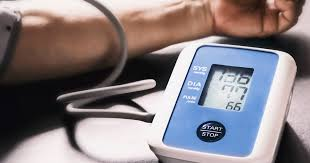Prostate cancer is one of the most common cancers among men worldwide. It often develops slowly but can be deadly if ignored. Knowing how to lower your risk can save your life. Early detection and healthy habits make all the difference. This article is here to give you solid facts and simple steps to stay ahead. By understanding your prostate health, you can take control today.
Understanding Prostate Cancer: The Basics Every Man Should Know
What Is Prostate Cancer?
Prostate cancer happens when abnormal cells grow in the prostate gland. This small but vital organ is part of the male reproductive system. Its main job? Producing fluid that helps sperm survive. When cancer develops, these cells multiply and form tumors that can spread to other parts of the body. Early stages often have no symptoms, making screening essential.
Who Is at Risk?
Certain men face higher chances of developing prostate cancer. Age is the most significant factor, as most cases occur after the age of 50. Men with a family history, especially if a father or brother had it, are more vulnerable. Ethnicity also matters; African American men are twice as likely to get prostate cancer and face worse outcomes. Lifestyle choices, such as diet and physical activity levels, can also further influence risk.
Why Prevention Matters
Every year, hundreds of thousands of men receive a prostate cancer diagnosis. Sadly, it is also a leading cause of cancer death among men. However, evidence shows that catching disease early saves lives. Prevention strategies help cut down the chances of developing aggressive forms. Taking steps today can mean a healthier future.
Key Risk Factors and How to Address Them
Age and Family History
Most prostate cancers develop as men get older. Knowing your family history helps identify your risk of developing certain conditions. If relatives have prostate cancer, talk to your doctor about screenings. This knowledge helps catch problems early before they become serious.
Lifestyle Choices and Habits
What you eat and how active you are impact your prostate health.
- Diet: Concentrate on fruits, vegetables, and whole grains. Limit red meat, processed foods, and high-fat dairy. These foods may increase cancer risk.
- Physical activity: Staying active helps maintain a healthy weight. Obesity is linked to a higher chance of prostate cancer.
- Smoking and alcohol: Smoking raises your risk, while excessive drinking can harm your overall health. Cutting back improves your chances of early detection and overall better health.
Medical Conditions Increasing Risk
Chronic conditions, such as inflammation or hormonal imbalances, can increase risks. Managing health issues with your doctor helps prevent many problems. Regular check-ups can detect early signs of trouble, making treatment more effective and potentially saving lives.
Proven Strategies for Prostate Cancer Prevention
Diet and Nutrition
Certain foods are linked to lower prostate cancer risk.
- Eat more: Tomatoes (rich in lycopene), broccoli, spinach, and green tea. These have antioxidants that may fight cancer.
- Limit foods: Red meat, particularly processed meat and dairy products, may increase the risk of certain health conditions. Try to reduce intake.
- Balance your diet by Focusing on whole foods, healthy fats, and lean proteins. A balanced diet supports overall wellness and reduces risk.
Regular Screening and Medical Check-Ups
Screenings can detect cancer early—often before symptoms show.
- PSA test: Measures prostate-specific antigen levels in your blood.
- Digital rectal exam (DRE): Your doctor feels the prostate for lumps or unusual growths.
- When to start: Men over 50 should discuss screening with their doctor. Individuals with a family history may need to undergo earlier tests.
- Frequency: Usually every 1-2 years, based on risk factors.
Lifestyle Modifications
Small changes can make a big difference.
- Exercise regularly: Aim for at least 30 minutes of physical activity most days.
- Maintain a healthy weight: Losing excess weight reduces the risk of cancer.
- Manage stress: Practice relaxation techniques, such as deep breathing or meditation, to enhance your overall health.
Other Tips
Stay motivated by tracking your health. Make appointments, stay informed, and keep a healthy lifestyle. It is your best shield against prostate cancer.
Emerging and Complementary Preventative Measures
Supplements and Natural Remedies
Some studies suggest certain supplements help.
- Selenium and vitamin D May support prostate health.
Caution: Never rely solely on supplements; talk to your doctor first. Avoid unproven remedies that claim to prevent cancer without evidence.
The Role of Clinical Trials
Researchers constantly seek better prevention methods. Participating in clinical trials can provide access to new treatments and contribute to the advancement of science.
Advances in Medical Research
New tools, including advanced imaging and targeted therapies, are enhancing early detection and treatment options. The future holds promise, including potential preventive medications that could lower risk.
What Men Can Do Today to Lower Their Risk
Build a Proactive Healthcare Plan
Schedule regular check-ups and screenings. Be honest with your doctor about your family history and health habits. Early detection is your best tool.
Adopt Healthier Habits
Start small. Replace processed snacks with fruits, take daily walks, or try stress-reducing activities. Small steps lead to big rewards.
Stay Informed and Educated
Follow trusted health sources for updates. Join prostate health awareness campaigns. Knowledge keeps you empowered to act.
Conclusion
Preventing prostate cancer begins with awareness and small, wise choices. Early detection saves lives, but your daily habits matter just as much. Take charge of your health today. Talk with your doctor, get screened regularly, and adopt a healthier lifestyle. Your future self will thank you. Stay informed, stay proactive, and enjoy a healthier, longer life.
Discover more from Healthinfo24.com
Subscribe to get the latest posts sent to your email.




Eva636
https://shorturl.fm/SP1Gj